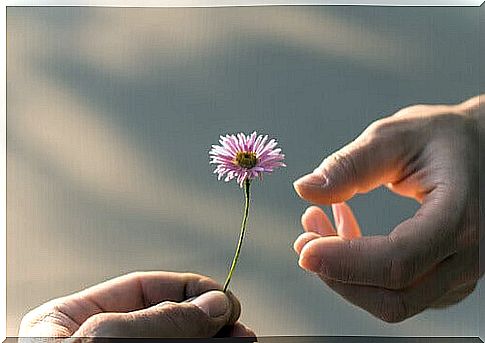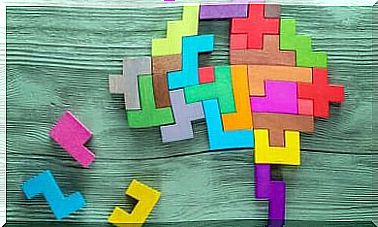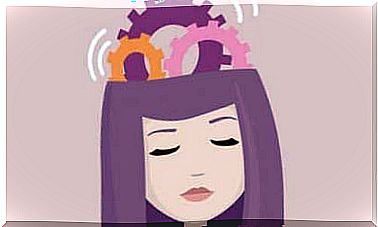Reciprocity Holds Relationships Together

We live in a society where we tend to measure everything we give and everything we think we deserve to receive in return. We spend a lot of time considering what others give back to us. Reciprocity has become a form of currency.
And this tends to cause a lot of suffering, because we often find that we receive less than we think we give, which can make us feel unfairly treated and dissatisfied with our interpersonal relationships. But reciprocity does not lead to suffering if you discover the great potential it has to help us enjoy our relationships and what we give to others.
To expect things from others
We tend to expect from others at least the same amount that we have given them. This causes problems because we rarely feel reciprocated. We feel frustrated, as if they are using us, because they did not give as much as we expected back to us.
Expecting others to do certain things in a certain way, and then not seeing these expectations fulfilled, can be quite disappointing. It may make you ask if you want to keep giving. It may seem more attractive to be a little more conservative in what you publish.
To please others
What often motivates us to give to others is our own interest in their well-being. We want them to thrive, have everything they need, etc. And first we do not want anything from them.

But when we are in a bad situation, when we feel a lack of support, or when they do not respond in the way we expected, we feel even worse. So when we need a hand, no one is prepared to give us one, even if we did not hesitate to give them one when they needed it. And then we begin to think that what we receive has nothing to do with what we give.
The need to be valued
Even though we are not aware of it, we often try to please others because we also need to receive. We give almost desperately, because we also need others to give to us.
We subconsciously believe that “if I take care of others, they will take care of me”, but this is wrong and something that will only lead to suffering and conflict in our interpersonal relationships. We have seen a thousand times that it is not so, although we are convinced that it should be so.
It is much healthier to take care of yourself, without expecting anything from others, and thus achieve this without trying to make others happy. Of course, that does not mean you should not take care of others. You can do it if you want, but avoid making it a state of mind that you are going to receive something in return.
In this way, the satisfaction of giving something to others will be the only reason to do so.

The right to reciprocity
Having the right to reciprocity means that you can receive what others give you and enjoy it. If you do not expect anything from anyone, gratitude and satisfaction will be maximized.
Understand reciprocity as an act of freedom, and that it is up to each person to decide what, when and how they will give. And only with respect for the decisions of others, you can fully enjoy the benefits of reciprocity.
Everyone decides
Everyone decides if they want to give or do something for someone. This means that no one owes anyone anything. We are all free, and we have no obligation to reproduce, just as no one else is obliged to reproduce us.
This way , you can stop measuring what others are giving you, because it’s their decision, and they do not have to give you anything, even if you already did it for them. In the same way, you will also stop feeling obligated or guilty.

Balance in interpersonal relationships
When we respect the decisions of others, we discover a new way of understanding relationships. It is quite likely that you will get a lot from people that you did not expect, and these people will probably not be the same as you gave to.
This is the balance between interpersonal relationships. It exists naturally, but it surprises us every time we do not expect anything and get a lot. In this way, reciprocity is transformed into an instrument of spontaneous exchange, satisfaction and gratitude.
When understood correctly, reciprocity makes you feel more free and more responsible for your own decisions, while accepting and being grateful for what others give you. Understanding reciprocity in this way will allow you to enjoy your relationships and all you can give them.









